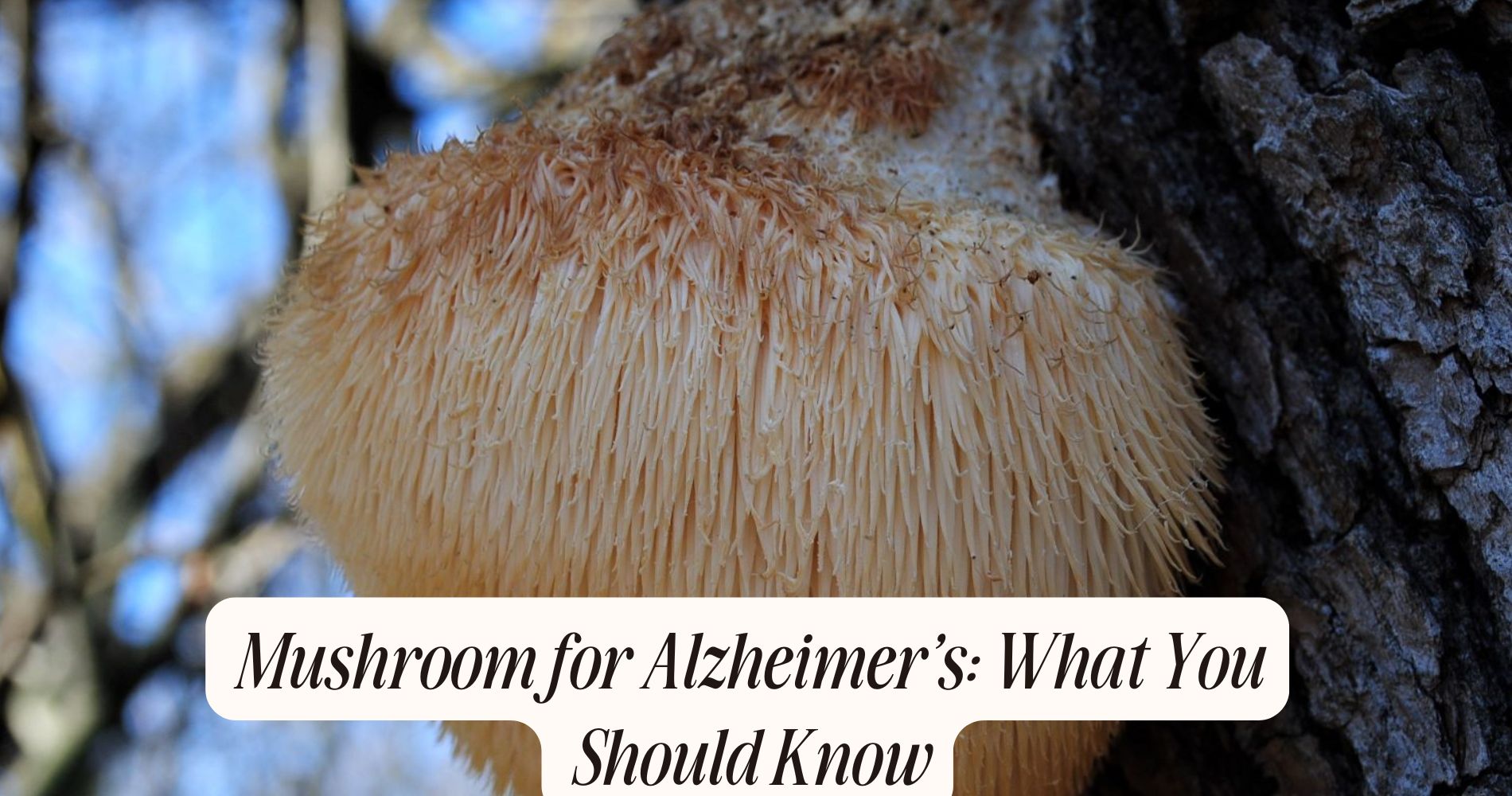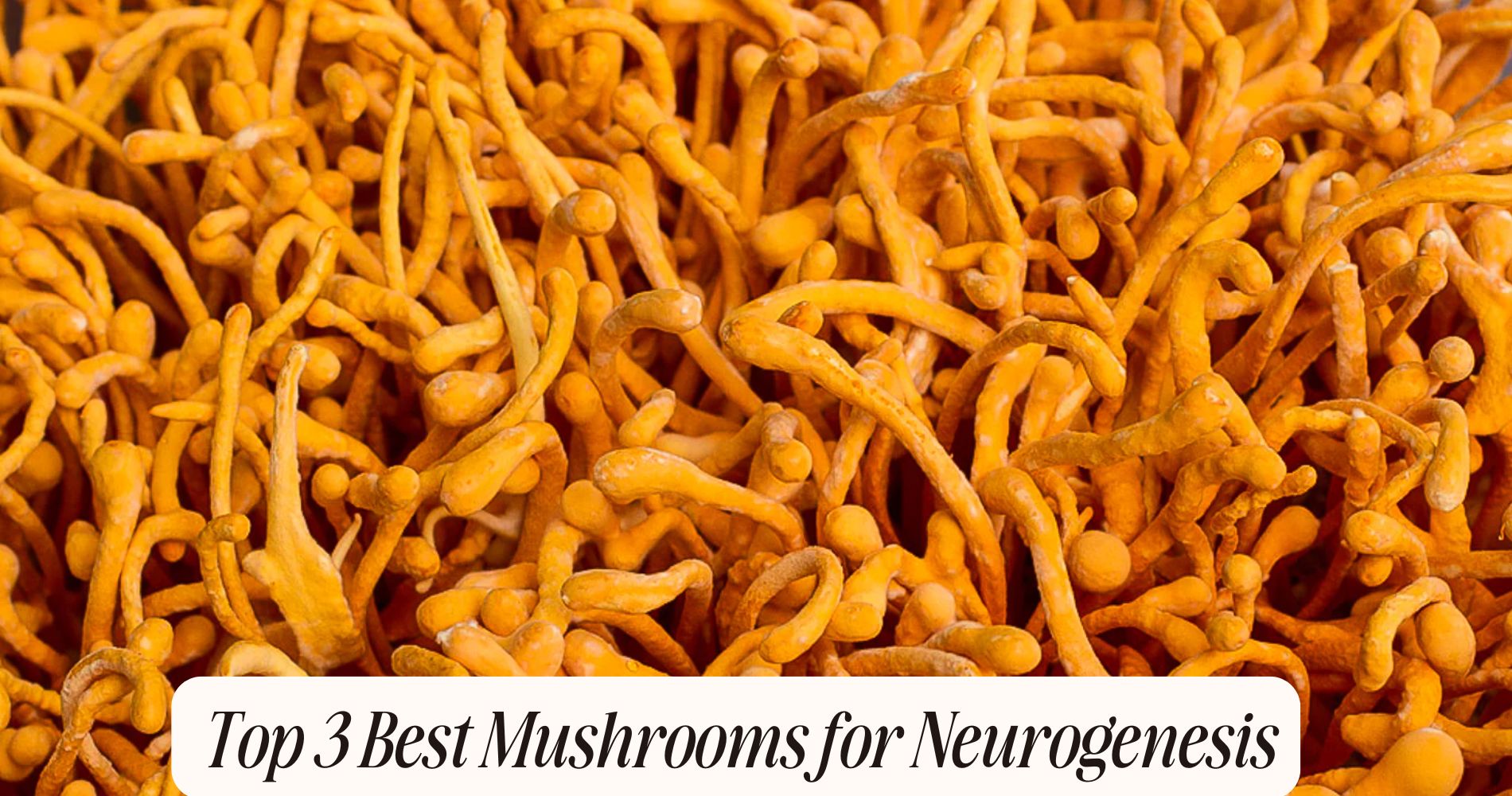
Mushroom for Alzheimer’s: What You Should Know
Overview of Alzheimer's Disease
Understanding Alzheimer's disease requires recognizing its complexity as a progressive neurodegenerative disorder that primarily affects memory, thinking, and behavior.
As you explore deeper, you'll notice that Alzheimer's symptoms often begin subtly, such as forgetfulness or difficulty in completing familiar tasks. These early signs can escalate, leading to confusion about time or place, challenges in problem-solving, and changes in mood or personality.
Diagnosis typically involves a thorough evaluation, including cognitive tests and medical history analysis.
While there's currently no cure, Alzheimer's treatment options are available to help manage symptoms and improve quality of life. Medications like cholinesterase inhibitors and memantine can temporarily alleviate cognitive decline and enhance daily functioning in some individuals.
Additionally, supportive therapies, such as cognitive stimulation and behavioral interventions, play an essential role in care plans.
Understanding the complexity of Alzheimer's allows you to appreciate the importance of early detection and intervention. By addressing the symptoms proactively, you can contribute to a more effective management strategy, potentially slowing disease progression and enhancing the well-being of those affected.
Nutritional Benefits of Mushrooms
Research indicates that diet can greatly influence brain health, and mushrooms are emerging as a potent source of nutrients that may support cognitive function. The diverse mushroom varieties, such as shiitake, reishi, and lion's mane, offer unique flavor profiles and numerous culinary uses, making them versatile ingredients in your diet.

Mushrooms are often misunderstood due to prevalent health myths, yet they provide essential vitamins, minerals, and antioxidants. Sustainable sourcing and mushroom cultivation practices guarantee that you can enjoy these benefits while supporting environmental health.
Seasonal availability allows you to experiment with various types, enhancing your meals with different textures and tastes. Employing various cooking techniques, like sautéing or roasting, can intensify their flavors and medicinal properties.
Additionally, you can utilize preservation methods like drying or pickling to enjoy mushrooms year-round, assuring you maintain their nutritional benefits. Incorporating mushrooms into your diet not only enriches your meals but also supports brain health in a delicious and sustainable way.
Key Compounds in Mushrooms
Mushrooms contain a wealth of key compounds that contribute to their potential cognitive benefits, particularly for those at risk of Alzheimer's disease. Among these, polysaccharides, such as beta-glucans, play an essential role in enhancing immune function and may help reduce neuroinflammation, a significant factor in Alzheimer's progression.
Psychoactive compounds, like psilocybin, have gained attention for their ability to promote neurogenesis and cognitive flexibility, which could be beneficial for brain health. Research suggests that these compounds may also enhance mood and alleviate symptoms of anxiety and depression, indirectly supporting cognitive function.
Medicinal properties found in mushrooms, such as antioxidants and anti-inflammatory agents, contribute to overall brain health. Compounds like ergothioneine and glutathione combat oxidative stress, a key player in neurodegeneration.
Additionally, certain mushrooms, like Lion's Mane, contain hericenones and erinacines, which have shown promise in stimulating nerve growth factor (NGF) synthesis. This process is essential for maintaining neuronal health and supporting cognitive function.
Research on Mushrooms and Brain Health
Emerging studies highlight the intriguing connection between mushroom consumption and brain health, particularly regarding cognitive decline. Research indicates that certain mushroom varieties may positively influence cognitive function, potentially serving as a protective measure against neurodegenerative diseases like Alzheimer's.
For instance, compounds such as ergothioneine and antioxidants found in mushrooms have shown promise in reducing oxidative stress, a key factor in cognitive deterioration. A study published in the Journal of Alzheimer's Disease found that individuals who consumed mushrooms regularly exhibited better cognitive performance compared to those who didn't.
Moreover, specific mushroom varieties, such as lion's mane, have been linked to neurogenesis—the process of forming new neurons—which is essential for maintaining cognitive health. These findings suggest that including a variety of mushrooms in your diet might bolster cognitive function and delay the onset of memory-related issues.

While more research is needed to establish definitive causation, the current body of evidence encourages you to contemplate incorporating different mushroom varieties into your meals. By doing so, you could enhance your overall brain health and possibly mitigate the risks associated with cognitive decline.
Types of Mushrooms to Consider
When exploring mushrooms for Alzheimer's, you should consider Lion's Mane for its neuroprotective benefits, which may enhance cognitive function.
Reishi mushrooms offer properties that could help reduce inflammation and support overall brain health.
Additionally, Shiitake mushrooms provide essential nutrients that contribute to peak brain function.
Lion's Mane Benefits
Research highlights several potential benefits of Lion's Mane mushrooms, particularly in the context of cognitive health.
Studies suggest that these mushrooms may play a significant role in cognitive enhancement, primarily through their ability to stimulate the production of nerve growth factor (NGF). NGF is crucial for the survival and maintenance of neurons, which could lead to improved memory and learning capabilities.
Additionally, Lion's Mane exhibits neuroprotective effects that may help mitigate the damage associated with neurodegenerative diseases, including Alzheimer's.
Some animal studies indicate that Lion's Mane can reduce amyloid-beta plaques, a hallmark of Alzheimer's disease, potentially slowing the progression of cognitive decline.
Moreover, the anti-inflammatory properties of Lion's Mane are significant. Chronic inflammation is a contributing factor in many neurodegenerative conditions, and reducing this inflammation could support overall brain health.
Incorporating Lion's Mane into your diet, whether through supplements or culinary use, may offer you these benefits.
However, it's important to consult with a healthcare professional before making any significant changes to your supplement routine, especially if you have underlying health conditions.
Reishi Mushroom Properties
Among the various types of mushrooms that can support cognitive health, Reishi mushrooms stand out for their unique properties. Known scientifically as Ganoderma lucidum, Reishi mushrooms have been used for centuries in traditional medicine, and research highlights several reishi benefits that may support brain function.
One of the primary active compounds in Reishi is triterpenes, which have shown neuroprotective effects. These compounds may help reduce oxidative stress and inflammation in the brain, both of which are linked to cognitive decline and Alzheimer's disease.
Additionally, studies suggest that Reishi may enhance memory and learning capabilities, making it a promising candidate for cognitive health support.

Reishi extraction plays a vital role in harnessing these compounds efficiently. Methods like hot water extraction and alcohol extraction can maximize the bioavailability of these beneficial constituents, ensuring you get the most out of your Reishi supplementation.
Incorporating Reishi mushrooms into your diet, whether through supplements or teas, could provide significant cognitive health support.
As always, it's important to consult with a healthcare professional before making any changes to your regimen, especially if you're considering Reishi for Alzheimer's prevention or treatment.
Shiitake Nutritional Value
Shiitake mushrooms, scientifically known as Lentinula edodes, offer a remarkable nutritional profile that can contribute to overall health, including cognitive function. These mushrooms are rich in essential nutrients like vitamins B and D, which play a vital role in brain health. Their high fiber content aids digestion and helps maintain stable blood sugar levels, further supporting cognitive clarity.
Shiitake benefits extend beyond basic nutrition; they contain compounds like lentinans and ergothioneine, known for their antioxidant and anti-inflammatory properties. Research indicates that these compounds may protect brain cells from damage, potentially lowering the risk of neurodegenerative diseases such as Alzheimer's.
Incorporating shiitake mushrooms into your diet is easy with a variety of shiitake recipes. You can sauté them in stir-fries, add them to soups, or use them in pasta dishes for an umami flavor boost.
By regularly including shiitake mushrooms in your meals, you can enhance not only your culinary experience but also your overall health.
Consider adding shiitake mushrooms to your grocery list for their impressive nutritional value and potential health benefits, particularly for cognitive function.
How to Incorporate Mushrooms Into Your Diet
Incorporating mushrooms into your diet can be both simple and rewarding, especially considering their potential health benefits. Start by exploring various mushroom recipes that highlight their unique flavors and textures. For instance, you can sauté sliced shiitake mushrooms with garlic and olive oil as a delicious side dish or add them to stir-fries for added depth.
Consider using different cooking techniques to maximize their nutritional profile. Grilling or roasting mushrooms enhances their umami taste while retaining essential nutrients.
You might also try incorporating them into soups and stews, where they can absorb flavors and provide a hearty texture.
Don't overlook the versatility of mushrooms in salads. Raw mushrooms can add a crunchy element, while marinated varieties can elevate your dish with their rich taste.
Experiment with mushroom powders as a seasoning to boost the flavor of various meals without extra calories.
Potential Risks and Considerations
While mushrooms offer numerous health benefits, it's important to be aware of potential risks and factors when adding them to your diet. One major concern is mushroom toxicity. Not all mushrooms are safe to consume; some wild varieties can be highly toxic and even deadly.
It's vital to verify that you're sourcing mushrooms from reliable vendors or, if foraging, that you have expertise in identifying edible species.
Another aspect to take into account is the dosage guidelines. While medicinal mushrooms can provide cognitive benefits, excessive consumption may lead to adverse effects. For example, high doses of certain mushrooms can cause gastrointestinal upset or allergic reactions.

It's important to follow recommended dosages and consult with a healthcare professional, especially if you're taking medications or have pre-existing health conditions.
Moreover, individual reactions to mushrooms can vary widely. If you're new to consuming mushrooms for their health benefits, start with small amounts to gauge your body's response.
Being mindful of these risks can help you enjoy the potential cognitive benefits of mushrooms while minimizing any adverse effects on your health.
Future Research Directions
Emerging research into the cognitive benefits of mushrooms offers promising avenues for future exploration. To better understand their therapeutic applications for Alzheimer's, robust clinical trials are essential. These studies should include diverse populations to guarantee findings are applicable across different demographic groups. Incorporating placebo controls will strengthen the validity of results and help discern actual benefits from subjective perceptions.
Research should also focus on the long-term effects of mushroom consumption on cognitive decline, as short-term studies may not capture sustained benefits. This will require careful dosage recommendations to determine ideal intake levels for different populations.
Collaborative studies among universities, research institutions, and industry partners can enhance knowledge sharing and resource allocation, potentially revealing new funding opportunities for expansive research projects.
Additionally, examining various mushroom species and their unique bioactive compounds can lead to a deeper understanding of their mechanisms of action. Understanding these factors won't only inform clinical practice but also pave the way for future innovations in Alzheimer's treatment.
Support Brain Health with SUPER MUSHROOM GUMMIES
If you're exploring the potential of mushroom for Alzheimer's prevention and brain support, consider trying SUPER MUSHROOM GUMMIES by Well Gummies. These easy-to-use gum chews are packed with 10 functional mushrooms known for their cognitive benefits, helping to enhance focus, memory, and overall mental clarity. With immune support and sustained energy, these vegan gummies offer a balanced way to nourish both mind and body naturally.
Enjoy the delicious taste of wild berries—just like candy but without the crash or jitters. Make brain health simple and enjoyable with SUPER MUSHROOM GUMMIES!
Frequently Asked Questions
Can Specific Mushroom Varieties Improve Memory Function?
Research suggests specific mushroom compounds may enhance cognitive function. By consuming these varieties, you could potentially benefit from their neuroprotective properties, which might support memory improvement and overall cognitive enhancement as you age.
Are There Any Known Side Effects of Consuming Mushrooms?
While many mushrooms offer health benefits, some can cause mushroom toxicity. You should be cautious about wild varieties, as they may lead to gastrointestinal issues or allergic reactions. Always consult reliable sources before consuming unfamiliar mushrooms.
How Do Mushrooms Compare With Other Alzheimer's Treatments?
When comparing mushroom compounds to other Alzheimer's treatments, you'll find that some studies suggest potential cognitive benefits. However, more rigorous research is needed to establish their effectiveness relative to conventional therapies like medications and lifestyle interventions.
Can I Take Mushroom Supplements Alongside My Medications?
You should consult your healthcare provider before taking mushroom supplements alongside your medications. They can help assess potential mushroom interactions and guarantee supplement safety, preventing any adverse effects on your treatment regimen.
Are There Any Dietary Restrictions for Consuming Mushrooms?
You should consider dietary guidelines when consuming mushrooms. Certain mushroom varieties can cause allergic reactions or interact with specific diets. Always check for any restrictions based on your health conditions or medications before incorporating them.
Conclusion
Incorporating mushrooms into your diet could offer promising benefits for brain health, particularly in relation to Alzheimer's disease. With their rich nutritional profile and key compounds that may support cognitive function, mushrooms warrant further exploration. However, it's important to evaluate potential risks and consult with healthcare professionals before making significant dietary changes. As research continues to unfold, staying informed will help you make the best choices for your brain health and overall well-being.




